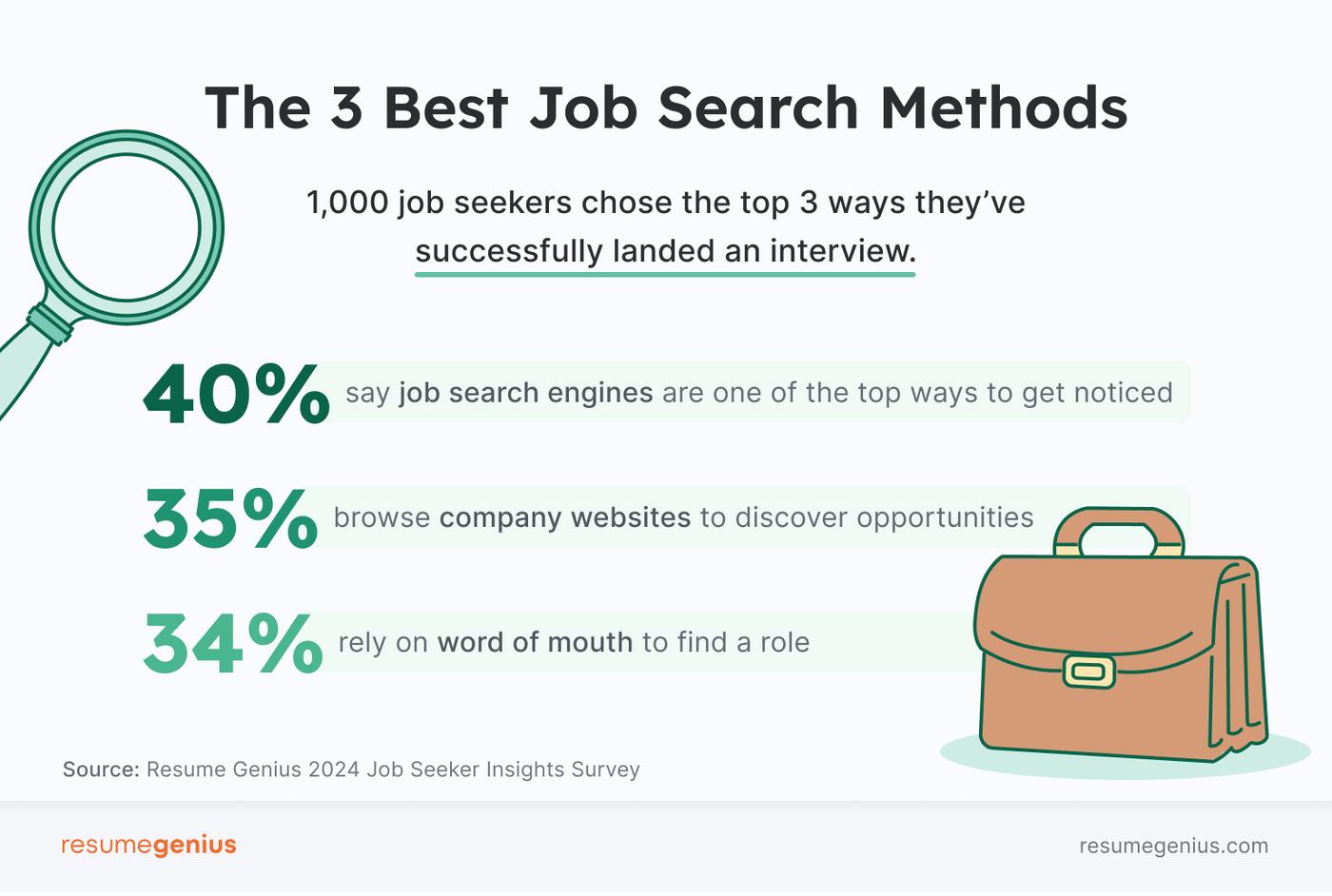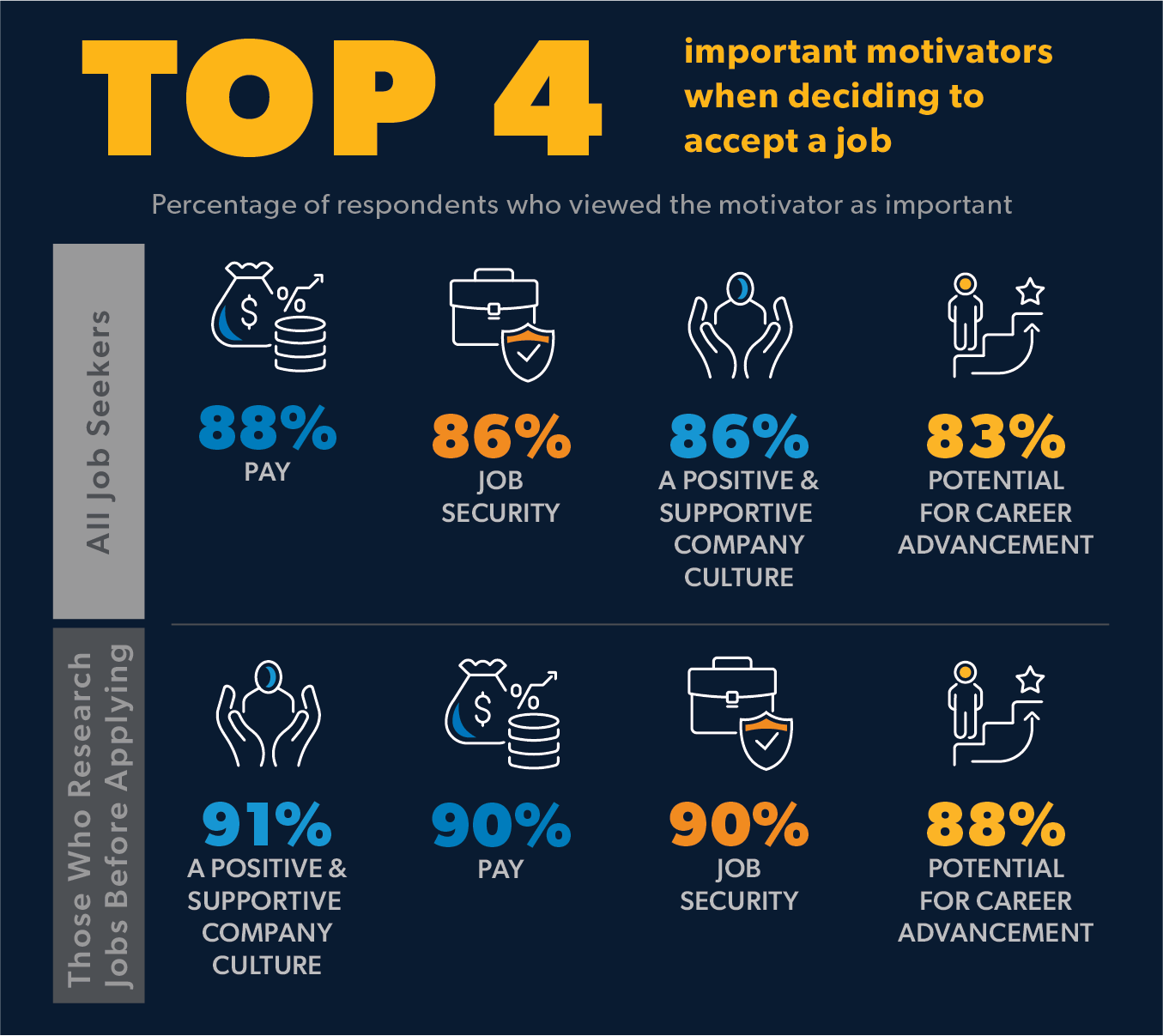Job Seeker Company Insights: How to Choose the Right Employer
Choosing the right company to work for is one of the most important decisions you’ll make in your career. As a job seeker, understanding company culture, compensation, benefits, and growth opportunities is essential for long-term job satisfaction. This article provides insights to help you evaluate potential employers and make informed decisions that will benefit your professional and personal life.

What Job Seekers Look for in a Company
1. Company Culture
One of the first things job seekers consider is the company culture. The work environment and company values play a crucial role in determining job satisfaction. A company that aligns with your personal values and fosters a supportive environment can lead to long-term success and happiness.
-
Inclusive and collaborative environments promote better teamwork and innovation.
-
Transparent leadership fosters trust and boosts morale.
Understanding a company’s culture is essential for determining if you will fit in with their team. Many job seekers now actively look for companies that prioritize diversity, inclusion, and work-life balance.
2. Salary and Benefits
Another important factor is the salary and benefits offered by the company. A competitive salary can be a strong motivator, but benefits such as health insurance, retirement plans, and paid time off are also key factors in making your decision.
-
Ensure the salary is competitive for your industry and location.
-
Look for comprehensive benefits such as medical, dental, and vision insurance.
Companies that offer generous leave policies, flexible working arrangements, and opportunities for bonuses or profit-sharing tend to be more attractive to top talent.

3. Opportunities for Growth and Advancement
A significant consideration for many job seekers is the opportunity for career advancement. A company that invests in employee development, offers training programs, and provides a clear career progression path can lead to better job satisfaction and long-term growth.
-
Companies that offer professional development opportunities show a commitment to their employees’ success.
-
Clear career paths and internal promotions can motivate employees to stay longer and perform better.
Job seekers are looking for companies that will allow them to grow not just in their current roles but also in leadership positions and new career areas.
4. Work-Life Balance
A strong work-life balance is essential to avoid burnout. Job seekers increasingly look for employers that offer flexibility, including remote work options and flexible hours. Companies that respect personal time and encourage a healthy balance between work and life tend to attract better candidates.
-
Flexible working hours allow employees to manage personal responsibilities.
-
Remote work options increase productivity and employee satisfaction.
Employers offering such perks demonstrate their understanding of the importance of mental and physical well-being, making them more appealing to potential hires.
How Job Seekers Evaluate a Company
1. Company Reputation
The reputation of a company can significantly influence a job seeker’s decision. Candidates often research a company’s reputation, including its track record on employee satisfaction, customer reviews, and overall corporate responsibility. Websites like Glassdoor and Indeed offer insights from current and former employees, which can be invaluable.
-
Employee reviews provide real-world insights into company culture and leadership.
-
Public reputation based on corporate social responsibility (CSR) initiatives can enhance a company’s attractiveness.
A company with a good reputation attracts not only job seekers but also loyal customers, which is crucial for long-term success.
2. Company Stability
Job seekers also prioritize the financial stability and longevity of a company. It’s important to consider whether a company has a history of success and whether it is poised for continued growth. Companies that demonstrate consistent profits and strategic expansion tend to be more attractive to job seekers.
-
A financially stable company offers better job security.
-
Companies with a strong market presence are more likely to offer job stability and growth opportunities.
When evaluating a company, look into its financial health, market position, and the potential for future success.
3. Leadership and Management
The leadership of a company is critical to its success and employee satisfaction. Job seekers should consider whether the company has strong, visionary leaders who foster a culture of transparency and accountability. Effective management leads to better employee performance, higher morale, and lower turnover rates.
-
Leadership that is approachable and supportive boosts employee engagement.
-
Companies with clear communication channels and visionary goals are more likely to thrive.
You can often assess leadership quality by reviewing public statements, interviews, and feedback from current employees.

4. Job Security
Job security is another key factor in choosing an employer. Job seekers are increasingly looking for stable companies that can weather economic downturns and market changes. Companies that have demonstrated resilience in tough times are often viewed as more attractive.
-
Companies with a track record of growth during difficult times are more appealing to job seekers.
-
The potential for long-term employment can be a strong incentive for top talent.
It’s also important to consider employee retention rates, as companies with high turnover may signal deeper issues.
Frequently Asked Questions (FAQs)
1. What do job seekers value most when choosing a company?
Job seekers value company culture, competitive salaries, benefits, growth opportunities, and work-life balance the most. These factors play a significant role in job satisfaction and overall career success.
2. How can I evaluate a company’s reputation before applying for a job?
Research a company’s reputation by reading employee reviews on platforms like Glassdoor and Indeed. Check for any recent news or public statements made by the company and pay attention to its corporate social responsibility (CSR) efforts.
3. How important is work-life balance in choosing a company?
Work-life balance is extremely important to job seekers today. Flexible hours, remote work options, and a supportive work environment contribute to greater job satisfaction and a healthier personal life.
4. What role does company leadership play in attracting job seekers?
Strong leadership is crucial for attracting job seekers. Supportive and visionary leaders create a positive work environment that motivates employees, fosters growth, and increases company loyalty.
5. Why is it important to research a company’s financial stability?
A company’s financial stability ensures job security and offers the potential for long-term career growth. Job seekers prefer companies that have a history of profitability and resilience, as this provides greater job security.
Conclusion
Choosing the right company is essential for a successful and fulfilling career. By considering factors such as company culture, salary and benefits, growth opportunities, and work-life balance, job seekers can make informed decisions that align with their career goals and values. Do your research, ask the right questions during interviews, and evaluate the stability and reputation of potential employers before making your choice.
For more tips on how to find the perfect job and make informed career decisions, check out our comprehensive guide to job searching.



